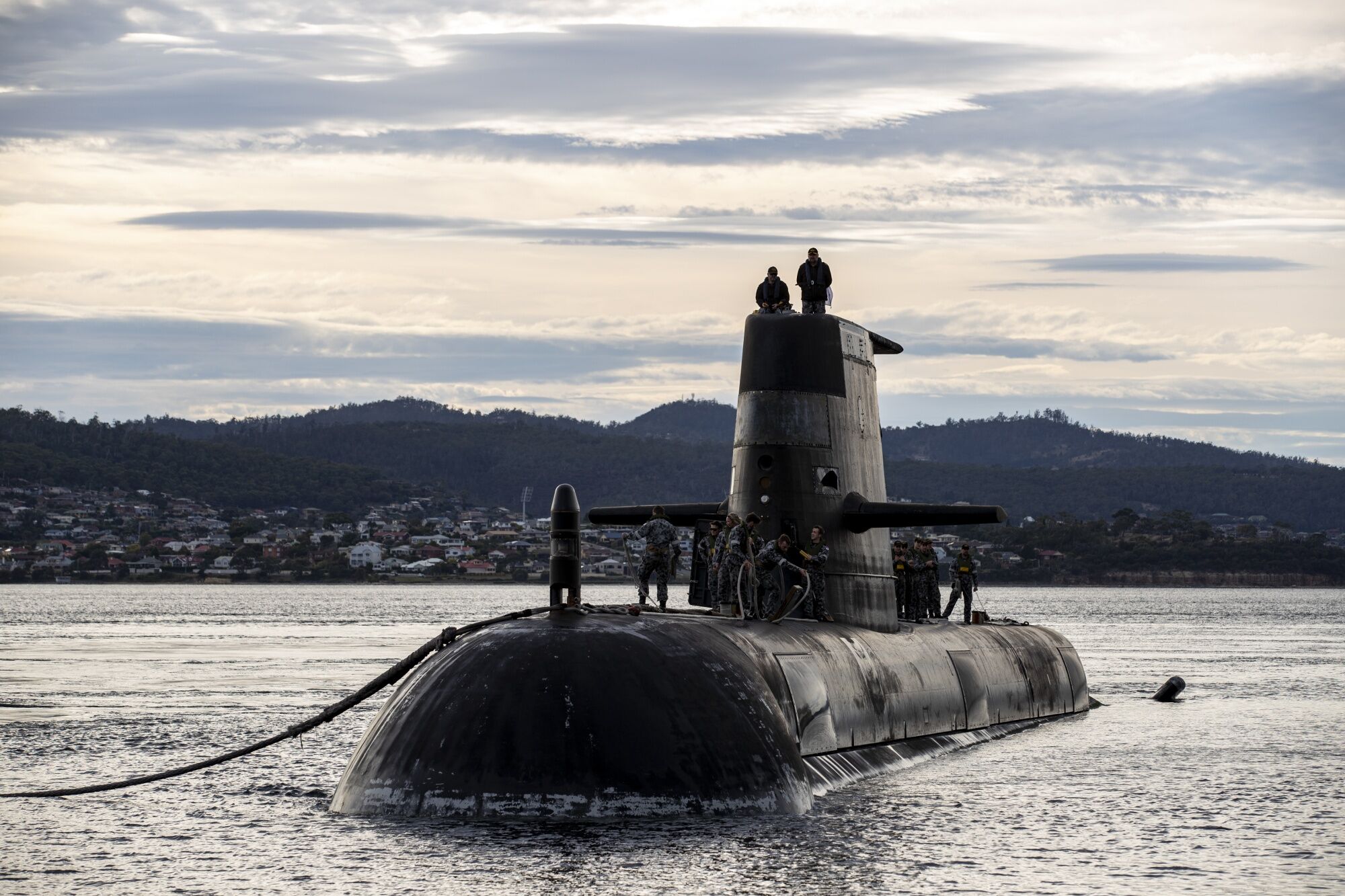Australia's Aukus Pact Unshaken by US Review

Australia's Commitment to Aukus Amid US Pentagon Review
Australia remains confident in the future of its security agreement with the United States and the United Kingdom, despite a review by the Pentagon. According to individuals familiar with the situation, the Trump administration’s evaluation of the Aukus pact is primarily focused on strengthening the alliance rather than dismantling it. This confidence is reflected in recent defense investments made by Australia, which include at least $9 billion allocated for related initiatives.
The Aukus agreement, first revealed in June, has been a focal point of discussions among officials. The U.S. government is emphasizing reinforcing the pact rather than reconsidering its foundation. This stance aligns with Australia’s recent announcements, which highlight its commitment to the partnership. Specifically, the nation plans to invest $8 billion in a defense hub designed for building naval ships and servicing submarines, along with an additional $1.1 billion for an underwater drone program. These moves demonstrate Canberra’s willingness to increase defense spending, a key priority under the current administration.
President Donald Trump has consistently urged global allies to boost their own defense budgets, signaling a shift from traditional security guarantees established after World War II. Australian Prime Minister Anthony Albanese has publicly emphasized this increase in defense funding, including the recent announcement of the defense hub. At a briefing on Sunday, he stated, “Today’s investment is another way we’re delivering record defense funding to bolster Australia’s capabilities. We pay our way and we contribute to our alliance each and every day.”
In addition to these investments, Australia and the UK signed a 50-year defense treaty in July to support the construction of nuclear-powered submarines. This development comes as Albanese prepares for a potential meeting with Trump later this month at the UN General Assembly in New York—his first encounter with the American president since January.
At its core, Aukus aims to counter China’s growing military influence in the Indo-Pacific region. A significant component of the agreement involves the U.S. helping Australia develop its nuclear-powered submarine fleet, including the sale of advanced Virginia-class vessels. The transfer is expected to begin in 2032 and 2035, with a third sub delivered by 2038. However, this aspect has sparked controversy due to the U.S.’s limited shipbuilding capacity.
Separate from the submarine initiative, Australia is currently undergoing one of the largest peacetime increases in defense spending in its history. This expansion reflects broader efforts to enhance national security while maintaining strong ties with the U.S. Despite challenges, including navigating relationships with both the U.S. and China, Australia continues to prioritize its alliances.
Albanese has also sought to balance relations with Washington and Beijing, recognizing the importance of maintaining trade ties with China, its largest export market. However, certain decisions, such as acknowledging Palestine, have drawn criticism from within Trump’s camp.
Despite these tensions, cooperation between the U.S. and Australia in military and intelligence areas remains strong. Defense Minister Richard Marles expressed confidence in the future of Aukus, citing positive interactions with U.S. officials. He noted that the U.S. and UK would likely welcome Australia’s latest decisions, further solidifying the alliance.
A Pentagon official confirmed that the Aukus review is ongoing but declined to provide details on how findings might be shared with Congress or allies. A U.S. State Department spokesperson reiterated the commitment to working with Australia to strengthen the alliance.
Australia’s strategic position beyond the range of China’s missiles makes it a secure base for operations, especially in the event of a conflict over Taiwan. Its northern coast offers access to critical sea lanes essential for sustaining U.S. and allied operations. Current U.S. military activities in Australia include rotating Marines through Darwin and utilizing local facilities for training and refueling.
The defense hub in Henderson, Western Australia, will serve as a base for U.S. and UK nuclear-powered submarines, beginning forward operations there from 2027. This initiative is expected to enhance Australia’s defense industries’ experience with nuclear-powered submarines. Marles emphasized that Henderson is a key location for Aukus, stating that the decision will be welcomed by both the U.S. and the UK.

Posting Komentar untuk "Australia's Aukus Pact Unshaken by US Review"
Posting Komentar